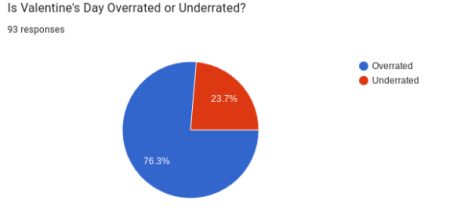College: Does the decision come too soon?
February 25, 2019
With turning 18 comes an avalanche of responsibilities. Some of these include the ability to vote, to serve on a jury, to buy a lottery ticket, to sign legal documents, to apply for a credit card and to buy a house.
You are now officially recognized by the rest of the world as an adult, which brings even more endless moral responsibilities.
Included in all these brand new responsibilities is making a decision that will decide where you will spend the next four years of your life after you graduate from high school, and the effects of this decision will stick with you and have a lasting impact on the rest of your life.
By now, most of you have figured out that I am talking about college, which may have been deemed the greatest years of your life by your parents or any other influential adults in your life.
Although it may truly be the best time of your life, it is time to stop and ask yourself this question: Is the age at which one has to pick a college too young?
Around half of the students were or will be 17 years old at the time they pick their college. They are not even legally considered an adult yet, and they’re making a choice that will impact what type of education they get, what types of careers this will warrant and how all of this will impact their financial situation once they settle down to start a family.
But, enough with this hypothetical, pessimistic forecast. Let’s look at some of the facts.
“An estimated 20 to 50 percent of students enter college as ‘undecided,’ and an estimated 75 percent of students change their major at least once before graduation,” stated a June 2013 article titled “The Developmental Disconnect in Choosing a Major: Why Institutions Should Prohibit Choice until Second Year” by Liz Freedman, a student employment coordinator for the Internship and Career Services at Butler University.
Your major is the single most important aspect of college. This is what is going to get you jobs after college. If students are going into college not knowing what they want to study, that should be an automatic red flag that the age for picking a college is too young.
If we were to make the college decision age 20 or 22, per say, then college hopefuls would have more life experience and more time to find their likes and dislikes.
Plus, college is expensive.
“According to the College Board, the average cost of tuition and fees for the 2017–2018 school year was $34,740 at private colleges, $9,970 for state residents at public colleges, and $25,620 for out-of-state residents attending public universities,” stated the article “What’s the Price Tag for a College Education?” on the website COLLEGEdata, a service of First Financial Bank.
Most of the cost for college is necessary to be able to pay the professors’ salaries. In essence, that means you are basically paying for college professors to teach you all the ins and outs of your selected major.
Therefore, why are we keeping the college decision age so young when more than half the students are making their deposits without knowing what major it is going to go toward?
Instead of going to college ‘undecided,’ there is always the option of taking a gap year and postponing your freshman year of college.
In fact, students who have taken a gap year after high school have credited their success to their gap year.
The book “The Gap-Year Advantage: Helping Your Child Benefit from Time off Before or During College” by Karl Haigler and Rae Nelson discusses the advantages of a gap year.
“Sixty percent of students said the experience of a gap year have an impact on their choice of academic major and career – either setting them on a different path than before a gap year or confirming their direction,” stated Haigler and Nelson.
This statistic was pulled from an independent study of 300 gap year students conducted by the two authors from 1997-2006.
While all these facts show why it may be time to postpone the college decision age, there are still many benefits to those choosing to go to college the fall after high school graduation.
Therefore, when and where you decide to go to college is completely up to you. If you don’t feel ready, though, don’t be afraid to take a gap year or a few years off; it may benefit you more in the end.
